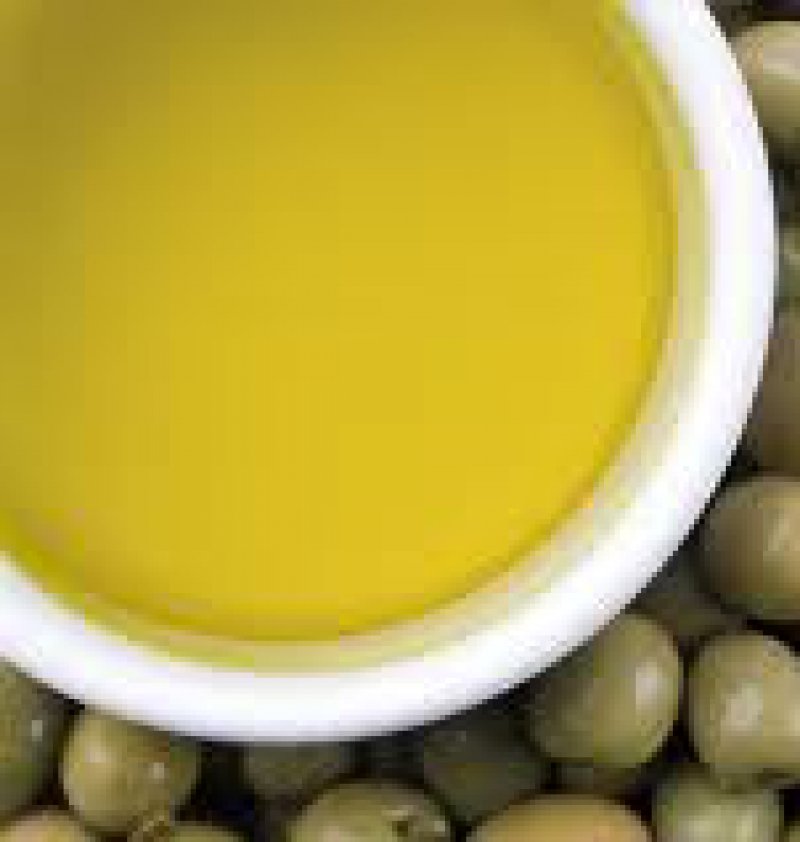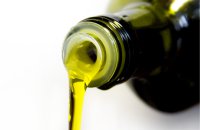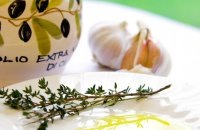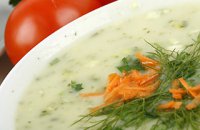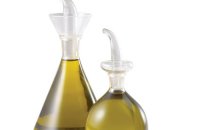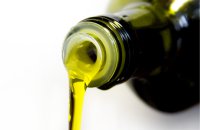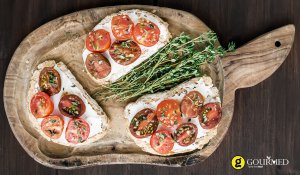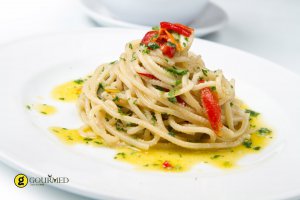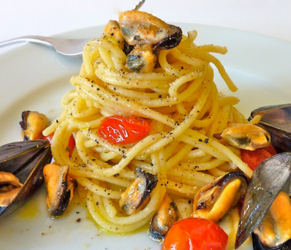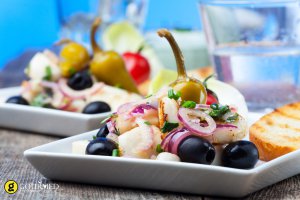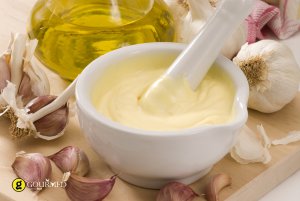Olive oil is ideal for cooking purposes. It adds a wonderful taste to the food and makes it healthier and easier to digest. You can enjoy olive oil in a great variety of recipes, either cooked or raw; excellent for marinading meat or fish, it is also ideal for frying.
Baking with Olive OIl
Your baking will be guaranteed a fine texture if you make use of olive oil, instead of other fats or oils. In fact, this monounsaturated fat has a specific fat crystal that is ideal for baking. It contains tocopherols (vitamin E) that will act as emulsifiers, producing cakes with a nice crust that are moist and tender inside. Tocopherols also have antioxidant qualities that help keep the fresh quality of the baked product. If you are replacing a solid shortening with olive oil, you must use 25 percent less olive oil. Here are some products that are particularly enhanced through the use of olive oil in the baking process: cookies, cakes (carrot cake, nut cake, fruit tarts and so on), corn bread, muffins, biscuits, scones, and pizza.
Broiling and grilling with olive oil
Roasted, barbecued, and braised dishes benefit from the use of olive oil which, thanks to the lighter volatile elements that it contains, will smell less in your kitchen. Marinating in olive oil, with a dash of vinegar, wine or lemon, brings out the taste of the meat or fish that you intend to broil or grill.
Frying in olive oil
As olive oil increases in volume when heated, you will see that you need less quantity than expected when you attempt to fry, deep fry, or sauté your food. Olive oil tends to coat, rather than be absorbed by, the foods that you seek to fry. Deep frying your ingredients in olive oil produces a crisp crust, sealing in the juices of meat or fish and enhancing the flavour of the vegetables. Olive oil can be filtered after use in frying and reused up to 3 times without noticably altering its flavours or aromas.
What type to use
Light and delicate dishes like poached or sauteed fish, chicken or veal, or perhaps mild flavored soups, may be better served by a milder, less fruity olive oil. Full-flavored robust dishes such as hearty stews, soups, or tomato-based sauces welcome a more fruity, flavorful olive oil, as do steamed vegetables and salads.
Roasted, barbequed and braised dishes which require high temperatures or prolonged cooking, are best cooked with fine/semi-fine olive oil, because it is less rich in the volatile compounds that evaporate with heat.
Delicious ways in which to enjoy extra virgin olive oil
- replace butter or margarine with a little plateful of olive oil in which you can dip your bread or rusk
- add a tablespoon of olive oil to the water in which you boil your pasta: by doing this, your pasta won't stick
- rub a little olive oil on your hands to spread your dough to prevent sticking
- pour a little olive oil on your potatoes before baking them to make them more crisp
-
sprinkle olive oil on all greens, on boiled potatoes, on carrots, beans or any other vegetable and serve them with fresh parsley and spring onions.
Oh, and, by the way:
While in Greece, think of buying the small bottles called "ladera," "ladika," or "ladotiria." With a special spout that allows the olive oil to flow slowly and perfectly, these bottles are so practical and useful that they are featured in most tavernas, as you will see. Such a spout enables you to add the exact amount of oil you desire smoothly and gracefully, endowing your salad with a heavenly taste. These containers can be found in a wide variety of shapes and sizes.















































